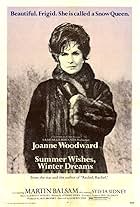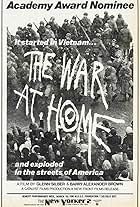Advanced search
- TITLES
- NAMES
- COLLABORATIONS
Search filters
Enter full date
to
or just enter yyyy, or yyyy-mm below
to
to
to
Exclude
Only includes titles with the selected topics
to
Credited as...
In minutes
to
1-50 of 52
- Rita, a middle aged New York City homemaker, finds herself in an emotional crisis which forces her to re-examine her life, as well as her relationships with her mother, her eye doctor husband, her alienated daughter and estranged son.
- Actors, comedians and artists get together to perform short, hilarious skits on current, intelligent and at times ridiculous topics.
- A subjective account of the act of making still photographs.
- Spins the tale of a woman, her sister, and the man who completes the triangle. Told through such fertile sources as grand opera, classical painting, and Victorian melodrama.
- The Set-Up is Kathryn Bigelow's student film at Columbia about the exploration of 'why violence in cinematic form is so seductive'. It featured two men beating each other to a pulp in a dark alley, while two professors analyzed the philosophy of it all on the soundtrack.
- An intimate look at a young filmmaker's sometimes rocky relationship with her widower father.
- Interviews with people involved with and leading the Madison, Wisconsin area resistance to the Vietnam war.
- During Prohibition, Kansas City was wide open, and jazz was its music. Late in the 1970s, musicians of the Pendergast era gather at the union hall to play, sing, and talk. Some were part of Walter Page's Blue Devils, joined Bennie Moten's band, and stayed with Count Basie's Orchestra. Basie is on hand, as are Big Joe Turner, Jay McShann, and some of his big band. Highlights include Turner's vocals, McShann's sly piano playing, a drum clinic from Jo Jones and Baby Lovett, Jimmy Forrest solos, and remembrances of Lester Young and of how Charlie Parker got his nickname. Throughout is the Kansas City sound: cool and relaxed, blues meeting swing, an afterbeat that calls for dancing.
- A cautionary tale about a coffee-swilling. A regular guy named Joe who's down on his luck and tries to drown his sorrows in coffee.
- 1979TV Short
- Director
- Producer
- Cinematographer ...
- Explores the long process by which the Natural Gas Policy Act of 1978 (NGPA) was crafted and signed into law under the presidency of Jimmy Carter.
- 1975– 1h 30mTV-14TV Episode7.0 (111)
- Sound Department (film segments "Perchance to Dream")
The host for the episode is Gary Busey, and the musical guests are Eubie Blake and Gregory Hines. The skits for this episode are as follows: When John Belushi is peeved that Gary Busey has been nominated for an Oscar, Gary tries to make amends. During his opening monologue, Gary performs a percussion solo, using his body as the drum kit. President Carter reluctantly agrees to his mother's request to take Billy along to the Middle East, where the first brother still manages to cause a mess. A group of guys in leisure suits discuss their solutions to various women's issues. During the Weekend Update, Jane Curtain reports on the Mid-East peace talks, the Voyager spacecraft, and seal hunting in Canada, while Bill Murray tries with little success to interview the widow of Mr. Ed. Honker dreams of someday getting the chance to perform Shakespeare. Gary Busey performs "Stay All Night" with Rich Danko and Paul Butterfield, and Eubie Blake performs "Low Down Blues", "I'm Just Simply Full of Jazz" and "I'm Just Wild About Harry" together with Gregory Hines. - 1975– 1h 30mTV-14TV Episode7.8 (132)
- Editorial Department
The host for the episode is Buck Henry (his eighth appearance), and the musical guest is Bette Midler. The skits for this episode are as follows: Mr. Bill goes to Rockefeller Center to see SNL, and almost gets to say the opening announcement. When Jane Curtain throws a tantrum in the control room because she's been passed over yet again to announce the show, John Belushi offers his support, but then steals the line out from under her. For his opening monologue, Buck Henry introduces some members of the audience who are taking part in an experiment to judge the quality of the show: as they gain or lose interest, the screen will shrink or grow in size. As Buck tries to engage the audience in intelligent matters, the picture soon begins to disappear, so he quickly switches to talking about sex. An entrepreneur combines three fun activities with his roller disco fishing park. The samurai baker provides a frantic man with a last-minute wedding cake. After watching the film Blind Ambition, Nixon tries to explain to his family that everything on the tapes was taken out of context because he and his staff were just joking around. During the Weekend Update, Jane Curtain and Bill Murray report on the aftermath of the Three Mile Island accident, NBC's new logo design, and the recent Canadian elections, Garrett Morris comments on the racial overtones of a recent Rolling Stones song, and Roseanne Roseannadanna starts talking about the gas shortage but wanders into a story about Jane's behavior at the beach. Uncle Roy shows up to babysit and convinces the girls to tie him up and stuff their socks in his mouth. The Olympia diner has burned down, but the owner is hoping to make a profit from the insurance payment. Joan Face interviews a pair of transsexuals who donated the necessary parts to each other. For the closing, Michael O'Donoghue does an impersonation of Elvis with needles through his eyes. Bette Midler performs "Married Men" and "Martha". - 1975– 1h 30mTV-14TV Episode5.8 (98)
- Producer (segment "Java Junkie")
- Cinematographer
- Editorial Department (segment " ")
The host for the episode is Ted Knight, and the musical guest is Desmond Child & Rouge. The skits for this episode are as follows: The Shah of Iran opens the show with a Christmas greeting for everyone. A secretary goes before the company grievance board to complain about the blatant sexual harassment her boss has been subjecting her to. New York policeman Bob Kopp offers some Christmas advice for everyone to watch their belongings, keep an eye on their wallets, get out of the way and mind their own business if they know what's good for them. A man almost throws his life away on a coffee addiction, but gets help by checking into rehab at Maxwell House. Lisa Loopner and Todd DiLaMuca take part in their school Christmas pageant. Andy Kaufman tries his hand at wrestling women again. Desmond Child & Rouge perform "Tumble In The Night" and "Goodbye Baby". - A live concert film documenting the September 1979 "No Nukes" concert at Madison Square Garden. Includes performances by Jackson Browne, Graham Nash, Bonnie Raitt, The Doobie Brothers and Bruce Springsteen.
- 1975– 1h 30mTV-14TV Episode6.4 (103)
- Producer (segment "Linden Palmer, Hollywood's Forgotten Director")
The host for the episode is Chevy Chase (his second appearance as host), and the musical guest is Marianne Fathfull. The skits for this episode are as follows: Henry Kissenger visits with former president Ford and reminisces on old times together. An ad invites diners to come to Pre-chewed Charlie's restaurant, where the food is easier to eat because all the hard chewing work has already been done for you. Other skits include the Bel Arabs, You Can't Win, Speaking of Fashion with Mr. Blackwell, the life of Hollywood's forgotten director Linden Palmer, and a segment about Honduras. Marianne Faithfull performs "Broken English", and "Guilt", and Chevy Chase performs "Sixteen Tons" with Tom Scott & The Saturday Night Live Band. - "Entertainment Tonight" is the #1 syndicated entertainment newsmagazine in the world.
- A young woman escapes from a mental hospital during the chaos of a nearby multiple-car accident. She is mistaken for a shock victim and is driven to her sister's house by a rescue volunteer. Then the real story begins...
- Using historical footage, still photographs, and live interviews, the filmmaker tells the story of Jewish life in Poland between the two World Wars. Includes scenes of urban and rural life, and covers the rise and flourishing of the many religious and secular economic, political, and social movements which characterized Jewish society at this time. Film is a broad survey rather than focusing on any particular sub-topic. Notable in that it deals with the vibrancy of the life of this population of 3.5 million, and not with the tragedy of its subsequent destruction.
- The crew is running out of money to finish their film.
- Alhough identified with the new 49er dynasty of Coach Bill Walsh and America's favorite quarterback Joe Montana, Super Bowl XVI also represents the arrival--following much adversity and many discouraging defeats--of Paul Brown's Cincinnati Bengals and their journeyman quarterback, Ken Anderson. Called the "best pure passer in the game" by 49er coach Bill Walsh, Anderson was originally the discovery and "project" of Bill Walsh who, as Bengal quarterback coach and offensive coordinator, had been tasked by Paul Brown, the legendary former coach of the Cleveland team named after him, with finding an answer to the Pittsburgh "Steel Curtain" with 4 Super Bowls in 6 years (1974-1979) with a team of 10 future Hall-of-Fame players. Ken Anderson from "tiny" Augustana College (the adjective first used by Howard Cosell) was a pristine model, or "natural" talent, who quickly understood and absorbed Walsh's creative offensive formations. Walsh's goal was to replace the old game "played in the trenches," which had relied primarily on the rush and on ball control, with a new, more free and exciting game emphasizing frequent, high-percentage passing. Later called the "West Coast Offense" Walsh's system first came to realization with the #1 Passer rating of Anderson in 1974, which was repeated in 1975, to the amazement of a national audience viewing a Monday Night Football game in which Anderson's 450 yards through the air would overshadow and defeat the Buffalo Bills despite O.J. Simpson's 200 rushing yardage on the ground. When Walsh left the Bengals at the end of the '75 season, it was a departure with no small amount of disappointment and bitterness. In his later books Walsh makes no secret that he wanted to prove to Brown and the Bengal organization that they had made a mistake in not promoting him upon Brown's stepping down as head coach at the end of the '75 season. Superbowl XVI, then, was: 1. the end of the Steeler dynasty; 2. the vindication of the passing game developed for the Bengals and now the 49ers by Walsh; 3. the return of Ken Anderson to #1 Quarterback after two dismal seasons of only 4 wins; 4. a "grudge match" that amounted to sweet revenge for the injury felt by Walsh upon his non-promotion; 5. a superior football game, with the Bengals winning the individual statistics for a new Super Bowl record in passing but the 49ers playing a near-perfect, error-free game to win by less than a touchdown. The next Superbowl featuring the same teams would end with an exciting last-minute drive by Montana for another 49er victory. But the individual statistics would tell a different story: unlike the '82 match-up, the Bengals would be completely outmatched in the 1989 contest.
















